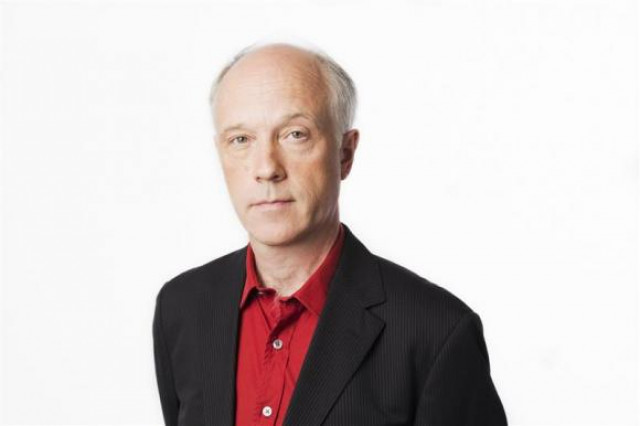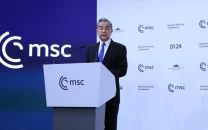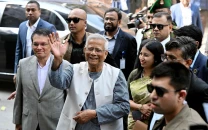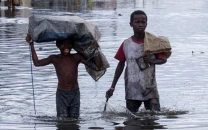In Afghanistan, attacks on journalists increasing ahead of polls
CPJ says country’s coverage has become a dangerous assignment for reporters.

Reporter for a Swedish radio Nils Horner
Afghan and international news organisations are concerned after the shooting of a British-Swedish journalist in Kabul this week and other incidents of violence against Afghan media persons, saying these could undermine coverage of the April 5 elections.
Nils Horner, a reporter for a Swedish radio, was shot dead in Kabul’s heavily-guarded Wazir Akbar Khan area in broad daylight on March 11. Reports suggest he had been covering the upcoming presidential and councils’ elections.
Afghanistan Islamic Movement Fidai Mahaz, a Taliban splinter group that opposes peace talks, had claimed responsibility for the attack. Residents of Kabul are concerned as to how gunmen were able to enter one of the most secured areas of the Afghan capital.
Hours after Horner was killed, an Afghan journalist, Mukhtar Wafiyee, was insulted and beaten up by unidentified gunmen in the northern city of Mazar-i-Sharif, local journalists say.
Afghan election officials say thousands of journalists, including over 300 foreigners have already been accredited for covering the elections.
Earlier this year Afghan journalists Mohammad Shahid Naeemi and Noor Ahmed Noori were killed in Kabul and the southern city of Helmand.
The latest killing invited condemnations from international media rights groups.
In a news release, the New York-based Committee to Protect Journalists (CPJ), which seeks to promote press freedom worldwide, asked Afghan authorities to ensure perpetrators of Horner’s killing are held responsible.
“This attack illustrates the growing insecurity in the Afghan capital and the apparent growing hostility towards foreigners working there,” said CPJ’s Asia Programme Coordinator Bob Dietz. “News organisations and journalists should take into account that covering Kabul has become a dangerous assignment.”
Nai, an NGO supporting open media in Afghanistan, said in a statement on its website that the increasing incidents of violence against journalists are meant to create an environment of fear so that the elections cannot be covered by journalists in their entirety.
The United Nations Assistance Mission in Afghanistan condemned the murder and urged authorities “to do all in their power to bring those responsible to justice”.
UN Secretary-General’s Special Representative for Afghanistan and head of the mission, Ján Kubiš, said in a statement that with each case of violence against journalists, an atmosphere of fear afflicts the media, prompting self-censorship and affecting freedom of speech, particularly in the wake of the upcoming polls.
As security remains a serious challenge for the April 5 polls, the Free and Fair Election Forum of Afghanistan in its report on the first month of the presidential election campaign stated the worsening security situation in some parts of the country had forced campaigns to main cities and secure regions, compared to the previous elections.
Taliban denounce elections
On March 8, the Taliban issued instructions to its fighters to launch attacks on candidates, campaigners and election officials as according to them “casting ballots is considered to be assisting the infidels and their stooges against Islam.”
“We have given orders to the Mujahideen to use force to disrupt the upcoming sham elections,” the statement had read further. The Taliban asked the people to keep away from electoral offices, voting booths, rallies and campaigns so their lives could be spared. “If anyone still persists on participating then they are solely responsible for the consequences,” Taliban spokesman Zabihullah Mujahid had said, ignoring a UN appeal not to disrupt the elections.
Afghan analysts say the Taliban have issued threats before, but this was the first time they had called for targeting polling stations.
Authorities in Afghanistan played down the threats and dismissed them as “propaganda” to spread panic among voters. Interior ministry spokesperson Siddique Siddiqui said over 300,000 security personnel have been deployed for securing the elections and the Taliban cannot terrify people by such tactics.
On March 13, Taliban abducted four employees of the independent election commission in the eastern province of Nangarhar, provincial police chief Fazal Ahmad Shirzad was quoted as saying in the Afghan media. Spokesperson for the province’s governor Ahmad Zia Abdulzai, meanwhile, had said five election official had disappeared on Wednesday.
A day earlier, three election workers of leading presidential candidate Dr Abdullah Abdullah were shot dead in the northern province of Faryab, an official said.
Published in The Express Tribune, March 15th, 2014.



















COMMENTS
Comments are moderated and generally will be posted if they are on-topic and not abusive.
For more information, please see our Comments FAQ